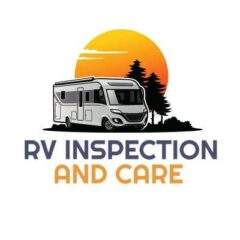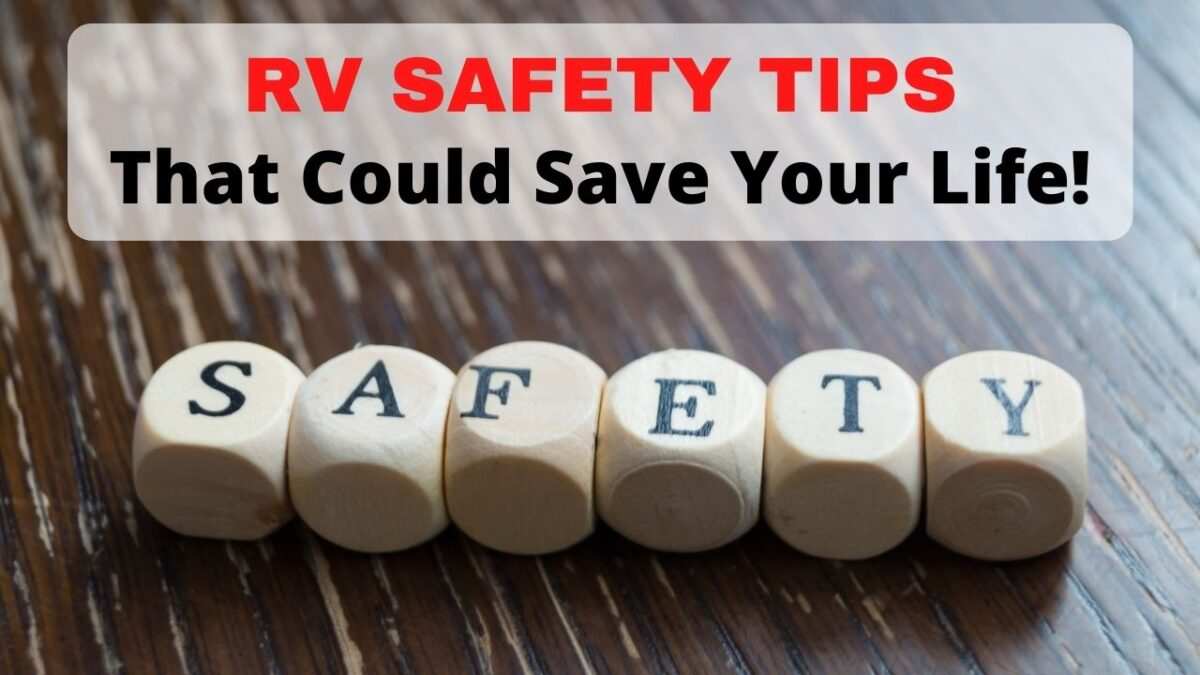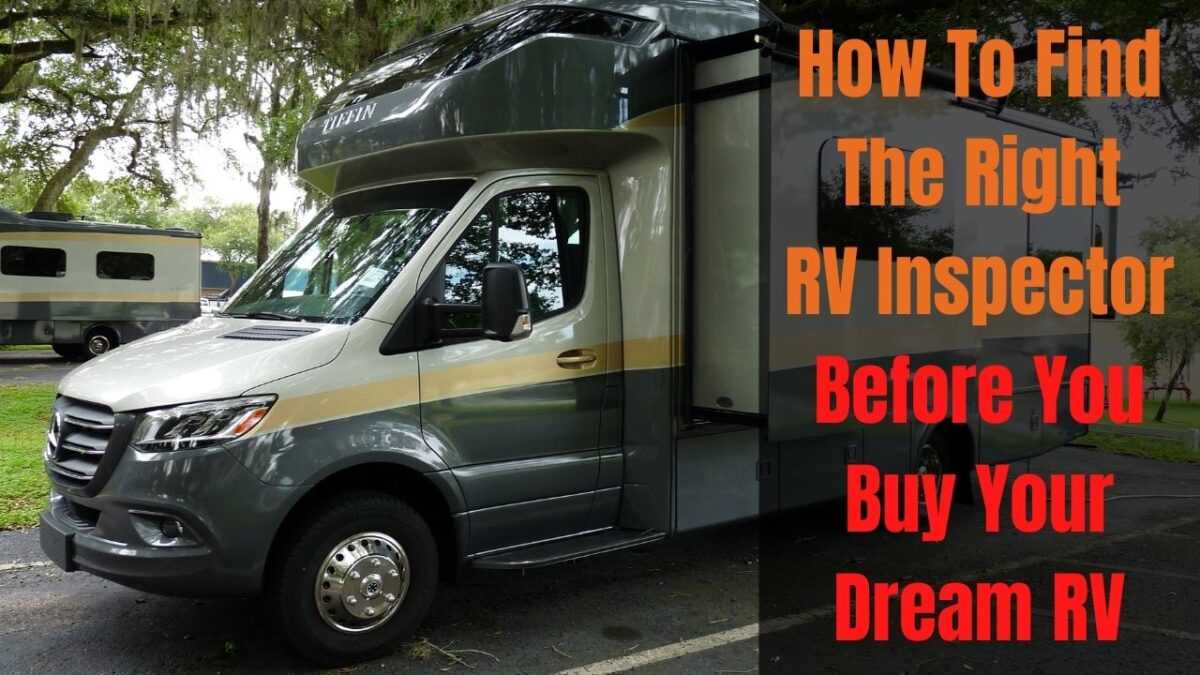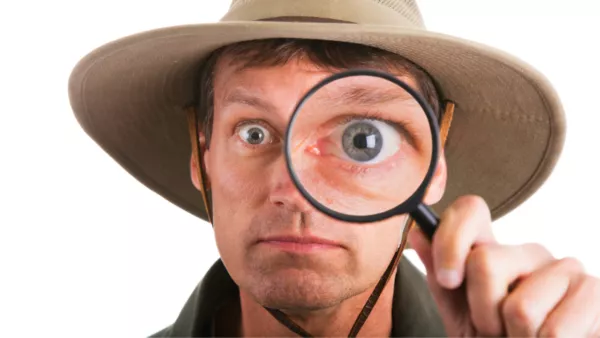In this article we’re going to be talking about a very important subject. And that is RV safety tips.
And we’ll cover items and procedures that can save your life.
Now I know that there’s a lot of folks that are a little hesitant to talk about safety issues.
Either it kind of bores them or they may feel a little uncomfortable talking about things that could possibly happen.
But as RV inspectors, it’s amazing how often RV safety items are not getting the attention that they deserve.
Maybe the owner is taking care of all the other items that are mechanical. Or maybe they are maintaining all of the RV appliances.
But very often they are not thinking about the safety items in the RV. And that’s really not a good thing to do.
Table of Contents
- Why Talking About RV Safety Is Important
- RV Safety Hazards When RVing
- RV Safety Tips #1 – Smoke Detectors
- RV Safety Tips #2 – Fire Extinguishers
- RV Safety Tips #3 – Exit Windows
- RV Safety Tips #4 – LP Detectors
- Is Your LP Detector Actually Detecting LP?
- RV Safety Tips #5 – Propane Leaks
- Why Carbon Monoxide Is Dangerous In An RV
- RV Safety Tips #6 – Carbon Monoxide Detectors
- RV Safety Tips #7 – Your Tires
- RV Tire Age Is Very Important
- RV Safety Tips #8 – Highway Speeds
- Keep Your Distance On The Highway
- Why RV Safety Is So Important
Why Talking About RV Safety Is Important
You know, most of my articles and videos are usually about how to save money with RVing.
Or how to make your time spent RVing more enjoyable and that kind of thing.
But this article’s information is some of the most important that I can share with you.
And that’s because I’m really not going to be talking about saving money in this article. Instead, I’m going to be talking about saving lives.
So this is very, very important information to consider.
RV Safety Hazards When RVing
Now there’s several things that could become issues that can arise around an RV. And the first that could become very hazardous is fire!
I mean that could happen anywhere, almost wherever we go in an RV.
But you also have to be careful about inhaling too much LP or propane. That’s because propane is a big part of RV living for the most part.
You also need to be concerned about inhaling too much carbon monoxide as well.
Carbon monoxide is formed whenever there’s combustion of any kind of fuel.
And because there’s usually a few different kinds of fuels on an RV, there is the possibility of that being an issue.
Also there’s the whole subject of road safety. As you know going down the road, there’s the possibility of a tire blow out.
And that could cause a loss of control or you could get in an accident, things along that line.
So clearly there are hazards that we need to be aware of and that we need to prepare for.
And that’s what we’re going to talk about in this article. Ways to prepare so that we don’t get into a major issue and problem.
Or if a major incident does unfortunately develop, we know exactly how to handle it when it happens.
RV Safety Tips #1 – Smoke Detectors
Now the first thing we want to talk about is fire safety. And with fire safety, the first line of defense really is your smoke detectors.
So, along that line many wonder how many should you have?
Well for us, we have a 40-foot motorhome and I’m not comfortable with just one. We have one in the front and one in the back.
There is one important thing to note here. And that is no matter how many you have, you need to make sure that they’re not only there.
But you’ve also got to make sure they’re actually working and functioning.
To do that there’s usually a test button on it somewhere. So when you press the test button, you are making sure that the power is available for that smoke detector to actually work.
Now if it does not test as working, usually it’s just a battery or maybe a couple of batteries.
And if they need to be replaced, replace them right away!
Smoke detectors do no good if they don’t have the power to actually be able to function.
Now the other thing is, you need to make sure that smoke detectors are not out of date.
And it’s generally recognized that there’s a 10-year life span for most smoke detectors.
However, make sure that you consult the manufacturer for the ones that you have and follow their directions.
Generally speaking, in most cases it’ll be about a 10 year life span. And if they’re beyond that, don’t take the chance, just get rid of them.
Get some new ones. They’re not that expensive anyway, and once again, it’s really about saving your life.
RV Safety Tips #2 – Fire Extinguishers
Now the next line of defense on fire safety is fire extinguishers. If a fire breaks out, you want to be able to curtail it as quickly as possible.
The number one place to have a fire extinguisher is right by the entry door to the RV.
And that’s where you’ll notice almost all manufacturers put them, right by that front door. Why?
Well because that enables you to use the fire extinguisher both inside and outside. It’s quickly accessed for either place.
But now once again, if you have a bigger RV, you may consider having more than just one.
For instance, we have three fire extinguishers in our RV. There’s one by the front door and we have one in the very back closet too.
But we also have one right in the middle of the RV underneath the sink.
The point is to make sure you have a fire extinguisher that’s easily available to you.
And that you can access it within just a few steps from anywhere you may be in the RV.
But, as with smoke detectors, you need to make sure that these fire extinguishers are not out of date.
Generally speaking, most fire extinguishers are out of date after 12 years.
However, once again, make sure that you follow the manufacturer guidelines on that extinguisher. And if it needs replacing, replace it immediately! Again, lives are at stake!
RV Safety Tips #3 – Exit Windows
Now there is a third point we want to make about fire safety. And this is one that I see a lot of folks do not follow.
They may be good about smoke alarms and great about fire extinguishers. But they don’t know where their exit windows are in the RV.
You know we all generally think, if a fire happens I’ll just run out the door. But what if there’s a fire by the door?
Well that makes things a lot more difficult. So manufacturers of RVs usually place an exit window somewhere.
This is a window that is easily removed. And one where it’s big enough that you can actually get out of your RV.
For us, in our RV, we have two of them. So, you need to know where they are. How do you do that?
They’re very often actually labeled and say “exit window” on them.
Or another dead giveaway is red levers on that window. If you see red levers where you pull them to push the window out, that’s usually where your exit window is.
So know where they are! And make sure everyone who’s going to be traveling with you in your RV knows where they are as well.
Again, it could really save a life!
RV Safety Tips #4 – LP Detectors
All right, let’s move along now from fire safety to LP or propane safety.
The RV manufacturers usually put an LP detector on every single RV out there.
You’ll find them usually kind of low to the ground in the RV. The reason for that is because propane often stays low to the ground.
And since it stays in a lower area, they put it down closer to the floor. Usually it’s on a wall or maybe a cabinet.
But it’s often going to be within about a foot or two from the floor. And when you find it, once again there’s a test button.
Usually that test button allows you to make sure that the detector has power, and it’s actually able to function.
If it’s functioning, the next step is to take the screws off. There’s usually one on each side of the detector.
After taking those off, then pull the detector out and look on the back plate.
And what you’re often going to find there is the manufacture date of that detector.
Now this is important because you don’t want one that’s beyond its lifespan.
Typically LP detectors are designed only to last for about five years.
Once again, check the manufacturer guidelines for the one you have. But most are around five years.
If it is beyond its lifespan, take that one out and get another one in there right away.
Is Your LP Detector Actually Detecting LP?
Now there is one more thing to do. So far, you have made sure you’ve got a current LP detector. And you made sure that it’s got power coming into it.
But all of this still doesn’t tell you if it’s actually working . So here is what I do to test a LP detector while I’m inspecting an RV.
It’s a little trick that inspectors like to use to test LP detectors. It helps make sure that they’re actually detecting LP gas like they should.
All you need to do is use a little butane lighter which is a very common thing to purchase.
First you pull the trigger and ignite the flame. After the flame is lit, while still keeping the trigger depressed, blow out the flame.
Now because the trigger is still depressed, there’s a little bit of butane that’s coming out of the end.
All you need to do then, is put the end of the torch down by the sensor of the LP detector.
It’ll still be emitting that little bit of butane. And usually within two to three minutes the detector will pick up on it and it will sound the alarm.
If it does, then you know everything’s working the way it should. Now if it doesn’t, have it examined by a qualified RV technician or just go ahead and replace it.
You don’t want an LP detector that does not detect. So this is a little trick that RV inspectors use to make sure that LP detectors are actually working.
So there you have it for LP safety. Make sure that you’ve got a current detector. And that it has power, and that it is actually detecting LP or propane properly.
RV Safety Tips #5 – Propane Leaks
Now next on our list is that we want to check for LP leaks too. You can forestall a lot of problems if you know that a leak is starting to happen.
So look for wherever there’s some kind of connection for the propane line coming out of the tanks. For instance, maybe going into the hot water heater or the furnace.
Or wherever else you find an LP line that has a connection.
Then get some soapy water that will allow you to be able to test those connections. Or there’s also solutions that are actually sold on Amazon for that purpose.
Now you never want to test those connections with any kind of flame. But what you can do is take that soapy water and spray it on the connection.
Initially you’re going to see some bubbling take place just from the soap that’s in the water. But that’ll fade very quickly.
Then before the water in the soapy solution actually evaporates, look for bubbles.
See if you see any bubbles happening while there’s still solution on there after that initial bubble up.
If you do, there’s a leak there. And that’s something that needs to be addressed right away by a qualified RV technician.
All right, so we’ve covered LP safety. Now let’s move along to talk about carbon monoxide detectors.
Why Carbon Monoxide Is Dangerous In An RV
We mentioned before that carbon monoxide takes place whenever there’s any combustion of fuel.
Well often, especially if you have a motorhome, you’re going to have a few sources of combustion.
Number one, you have your engine. So the engine itself is combusting fuel as it’s moving down the road.
Also, you could have other kinds of things running that could produce carbon monoxide.
You could have carbon monoxide being formed by your generator when it’s running.
Or by the propane that’s being used by your hot water heater or by your furnace.
All of these are things that can create carbon monoxide. And if you aren’t careful, sometimes these items may not be working like they should.
So some carbon monoxide can begin to build up inside in the living area and could be lethal to you.
RV Safety Tips #6 – Carbon Monoxide Detectors
So you need carbon monoxide detectors or “CO detectors” to warn you.
Now in order to do that you’ve got to have enough for the size of your RV. They’re similar to smoke detectors in that respect.
You need to have enough for your RV’s size. And once again, make sure they’re not expired.
When it comes to CO detectors, it’s generally a five year life span. But again, check with the manufacturer of the one that you have and follow their guidelines.
And make sure that you test them to verify that they’re actually working. You want to be sure that they have some kind of power going to them.
And if batteries need to be replaced, go ahead and do that immediately.
With CO detectors and smoke detectors, they need to be RV approved too.
So don’t go down to Home Depot and buy ones that are used in residential homes to put in your RV.
You really need RV approved smoke detectors and CO detectors.
Now sometimes the CO detector will be combined with the LP detector.
But if it’s not in your LP detector, make sure you have a separate CO detector.
RV Safety Tips #7 – Your Tires
So far, we’ve covered a lot of RV safety topics. Now let’s shift gears a little bit to start talking about road safety.
This is an area where I often see more problems than almost anywhere else. There are many RVs on the road not being handled safely.
The first way to make sure that you’re practicing road safety is to take care of your RV tires.
You know, tires are the thing that actually is gripping the ground.
So that’s the one thing that makes your connection with the road. And if something goes wrong with that, well you can easily lose control.
So the first thing you want to know is: what should the tire pressure be for the weight of my RV? That’s number one.
And the manufacturer of your RV tires usually makes a chart for this purpose.
Then you need to make sure that you keep your tires at the correct tire pressure.
And if you have a tire pressure monitoring system, well that makes it pretty easy.
In fact, you can at a glance make sure that the proper tire pressure is in your tires.
But if you don’t have one of those, then make sure that you regularly check that tire pressure manually. And that everything is what it really should be.
RV Tire Age Is Very Important
Now you also don’t want to run on tires that have aged out. And the truth is that RV tires usually age out before they wear out.
In your car, you run your tires so often that they usually wear out before they age out. But not so on RVs.
So there’s a need for you to monitor the age of your tires. How do you do that?
Well on the tire sidewall just look for a four numeral code.

It may be difficult to find sometimes. But if they’re located on the outside of the tire, that’s when it’s easy.
There are other cases when it’s on the inside of the tire because that’s just the way it was mounted.
Now after locating this four digit code, notice the first two digits of that code. This is the week that the tire was manufactured.
The second two digits is the year of its manufacture. And check to see if that year of manufacture date is more than six years old.
Why? Because most tire manufacturers recommend that you replace them at six years of use.
So make sure you know the age of your tires. That way you won’t be driving on tires that have aged out. That could be potentially a very serious safety hazard.
So monitor the age of your tires very, very closely.
RV Safety Tips #8 – Highway Speeds
Now the next point we want to make on road safety is to drive at a safe speed.
I can’t tell you how many times that we’re going down the road and we get passed like we’re standing still.
By RV’s, big RV’s, going 80 to 85 miles an hour and sometimes more. I can tell you that those tires were not made to be traveling at that kind of speed.
So it’s better to slow down a little bit. Most tires for RVs are made to travel somewhere between 60 and 65 miles per hour.
Maybe a little bit more at times, but don’t make a habit out of it.
If you run those tires at the right speed, then heat doesn’t build up excessively in the tire. And that is what often causes a blowout in many cases.
So that’s the number one reason for driving at a reasonable speed. It’ll make sure that your tires have the optimum conditions for traveling.
Keep Your Distance On The Highway
But there’s a second reason that you want to slow down and keep a normal speed. And that is because your RV weighs a lot.
So since RVs have a lot of weight behind them, what happens if you’ve got to stop them quickly?
Well the longer you have to do that, the better the likelihood you will stop safely.
I personally like to have plenty of space between us and the vehicle in front of us.
That way if anything happens, then I can stop that RV as quickly as possible. And without fear of running into something when I do.
So it’s important to make sure that you keep that space between you and the next vehicle.
By the way if you’re traveling at a little bit slower speed that kind of happens automatically. Because people just go around you and pass you and go way ahead.
And that’s great because that gives you plenty of room in case something does happen.
So for road safety make sure that you keep a safe speed. And that you keep those tires in really good condition as you’re traveling down the highway.
Why RV Safety Is So Important
Well my friends, RV safety is just not that exciting until your life is in danger.
And then it becomes very exciting! But the wrong kind of excitement at that point.
That’s the kind of excitement we can all live without, right?
We just don’t want to be in those stressful kinds of situations. And remember you can’t unring that bell when tragedy has already struck.
So the solution is prepare well beforehand. Put safety first!
And that’s the way that very often you can avoid different kinds of bad situations. Or maintain control if they do happen.
Now we don’t want to say that you’ve got to live in fear of RVs. Or worry about traveling in RVs. That’s going a little too far in the other direction.
But what we can say is this. If you practice the safety procedures that we have talked about today.
And if you keep them as part of your regular RV maintenance routine.
Then most likely that will ensure that you can safely enjoy your RVing adventures pretty much anywhere you want to go.
Have safe and happy travels my friends… until next time.







